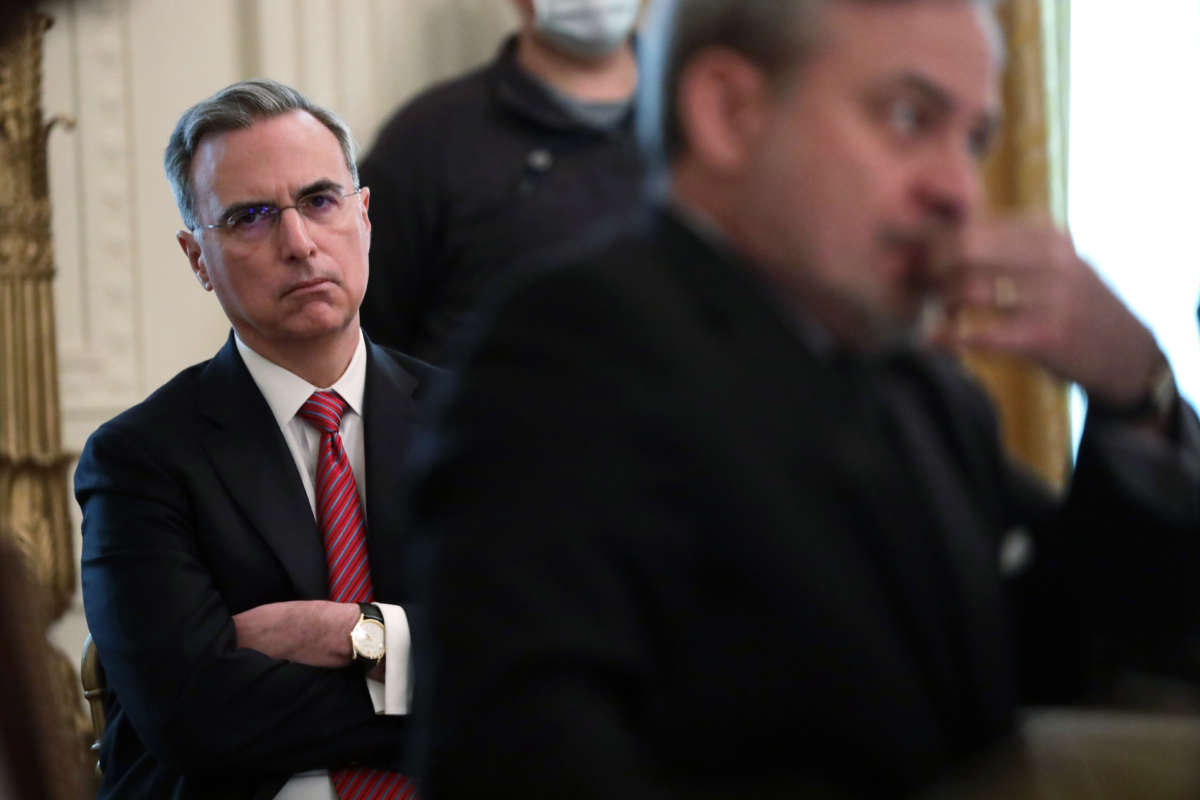Former White House counsel Pat Cipollone, who served under former President Donald Trump, has reached an agreement to testify before the House select committee investigating the January 6, 2021, attack on the U.S. Capitol building.
The committee has spoken with Cipollone before, but only in an informal, limited scope. After weeks of negotiations to impel him to speak under oath and in more depth about his work during the final weeks of the Trump White House, the committee finally subpoenaed Cipollone last week, leading the former White House counsel to agree to testify on Wednesday.
Although Cipollone’s interview with the committee will not be aired live, it will be videotaped and transcribed, according to sources with knowledge of the matter. He is not expected to testify at a public hearing in the future, but the January 6 committee could share excerpts of his testimony at a later date, some have speculated.
Trump condemned the subpoena by the committee last week, saying that if his former White House counsel testified, such a move would be unprecedented — a complaint that was errant, as John Dean, who was a former White House counsel to Richard Nixon, testified during the Watergate hearings nearly five decades ago.
Cipollone’s testimony is considered critical by the committee, as he was actively engaged in behind-the-scenes discussions with Trump and his allies about how to overturn the results of the 2020 presidential election. He was privy to discussions, for example, on a proposal by some in Trump’s orbit to seize voting machines from states the former president had lost, ostensibly to investigate false allegations of fraud that had already been debunked. Cipollone was also involved in discussions on plans to send letters to state lawmakers through the Department of Justice, urging lawmakers to take false claims of fraud seriously.
Calls for Cipollone to testify increased after explosive testimony last week from Cassidy Hutchinson, a former aide to former Trump chief of staff Mark Meadows. In her publicly aired meeting with the committee, Hutchinson recalled how Cipollone had objected to plans by the former president to encourage his supporters to go to the Capitol.
“We’re going to get charged with every crime imaginable,” Cipollone warned Meadows, according to Hutchinson’s account.
The news of Cipollone’s deal with the January 6 committee comes the same day the panel announced that another former White House aide, Sarah Matthews, would be testifying to the committee on Tuesday, July 12.
Matthews, who served as former deputy press secretary until resigning after the January 6 attack, will likely be asked questions relating to the mob that attacked the Capitol, including why Trump called on his loyalists to assemble that day, and why he instructed the crowd to march toward Congress as it was in session.
Press freedom is under attack
As Trump cracks down on political speech, independent media is increasingly necessary.
Truthout produces reporting you won’t see in the mainstream: journalism from the frontlines of global conflict, interviews with grassroots movement leaders, high-quality legal analysis and more.
Our work is possible thanks to reader support. Help Truthout catalyze change and social justice — make a tax-deductible monthly or one-time donation today.
